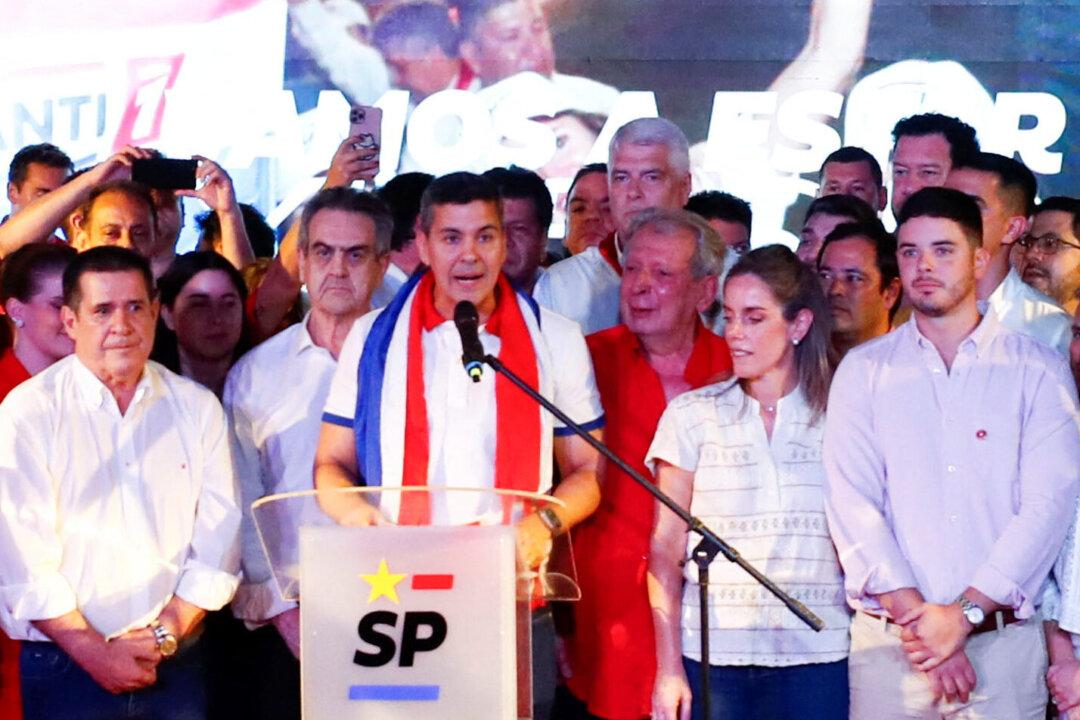Paraguayan President-elect Santiago Peña said on July 9 that he'll visit Taiwan this week to deepen bilateral relations with the self-ruling island as part of his administration’s “intense international agenda.”
Mr. Peña, who’s set to take office in August following the victory of the ruling Colorado Party in the country’s April elections, will begin his five-day visit to Taiwan on July 11 after a stop to Abu Dhabi, United Arab Emirates.





